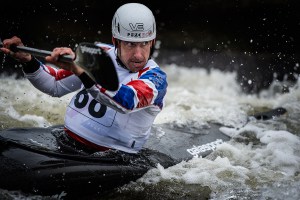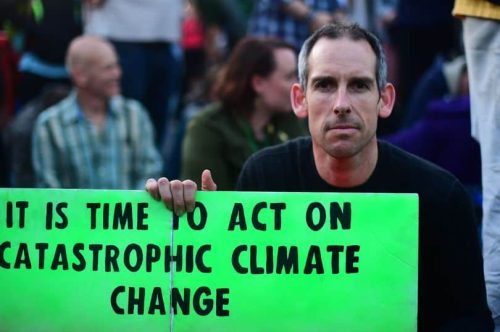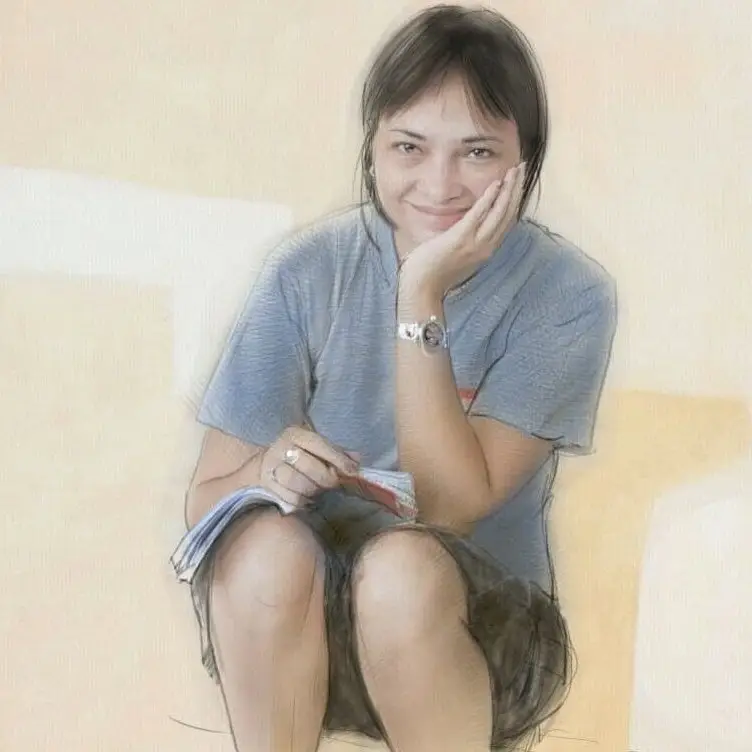London 2012 Olympic canoe slalom gold medalist, Etienne Stott is championing for our climate. No stranger to fame, Etienne has swapped podiums for protests in order to defend our planet. In our exclusive interview, Etienne shares with us the challenges facing paddlesports and how to get involved in championing for the climate.
You’re no stranger to the racing circuit with many medals under your belt culminating in an Olympic gold in 2012. What was the journey that brought us to here?
I started paddling when I was 10 or 11 in the Scouts and got pretty serious, so that by the time I was 13, I was dead set on becoming an Olympic or World Champion. That happened something like 20 years later at London 2012, but on the way I had the privilege to learn so much about myself, my sport and human potential.
I was lucky enough to race and train all over the world and score some good results at Worlds and Euros, but I will never top winning in front of that home crowd at a home Olympics.

You raced C2 slalom so were used to a team mentality. How did this help you transfer into the raft racing circuit?
I got into the rafting scene because my wife at the time was in the British senior women’s team. It was a really cool challenge to adapt my canoeing insights into rafting and I was really proud to coach at the Worlds in Indonesia in 2015 where I think I contributed to a successful campaign.
I have also helped with GB team selection; setting the slalom courses on a few occasions (which may have been a tad on the tough side here and there!) and I am the Chair of the International Selection Panel which selects the crews to represent Great Britain at international races.
Was there a catalyst or a gradual recognition over time get to get involved with climate action?
I was fairly conscious of the environment for quite a lot of my career, but I never quite realised how much trouble we were in until I started looking into it once I had retired from competing. It was in late 2019 that Extinction Rebellion issued a declaration stating that it was the duty of every citizen to demand action from our governments to address the climate emergency and ecological emergency. By that time I had realised that my ambition to help people to live better lives with the lessons which I’d learned in sports was incompatible with scientific reality.
The future which many people believe awaits them simply doesn’t exist. I decided that to be authentic to that understanding and to live according to that truth meant that I had to act. I could not, and I cannot, just stand by and watch humanity destroy our planet and unleash unimaginable suffering upon itself. The time is now and the people to do something about this is you and I, because this isn’t going to fix itself.

Paddle sports can be seen as being climate friendly when only considering being on the water itself. However, other factors and elements are involved in terms of transport logistics, equipment design and manufacturing, event management, water access and consumption effects. Over the past ten years, what changes have you witnessed in paddle sports in terms of positive action to climate change?
This is a tough question and I find myself feeling quite sad contemplating the answer. Society in general is not reacting to the emergency situation with the urgency it warrants and sport is no exception. I am so aware of the passion and dedication that paddlers of all disciplines have for our sport, but I don’t think enough is happening. It’s really tough for me to say this, but we need to have some serious and well-informed debate. There is no paddlesports on a dead planet, or a planet ravaged by wars, famines, droughts and extreme weather.
Today’s young athletes will retire into a very difficult world and though their paddling dreams may have come true, the science tells us that other dreams they hold will be a struggle. The choices we have to make as a paddlesport community, and as a society, are challenging. I’d suggest that we need to fly and travel less, use less equipment, consume less animal products for food and just consider whether we want future generations to enjoy paddlesports, or just us.
The love I feel for the paddlesport community and our sport is really tough, because I want so much for them to feel happy and live their dreams, but I also want them to be able to live in a safe future. These are tough conversations, but we owe it to ourselves and everyone to have them.

Does being a famous face add weight to your climate actions?
For me there is a sense of responsibility and duty to use my ‘fame’ for the good of others. I always say ‘fame with a small ‘f'”! But I believe that regardless, we all have a voice and we all have people who respect our opinions. We’re living in times where a lot is at stake and although you need to be a bit brave, it is important to have an opinion on these important matters.
As an Olympic champion, the public holds me in some regard and I see it is my job to explain why peaceful protest is necessary. It is also true that I feel I should normalise these ‘disobedient’ actions which I undertake, because I believe they are entirely justified and appropriate given the height of the stakes and the criminal inaction of the people who are supposed to be keeping us safe.
Would you take the actions you do now if you didn’t command the voice that you do? How can junior athletes and those who feel strongly about climate change speak up without risking their paddling careers for fear of retribution or deselection?
I ask myself this question a lot and I don’t know the answer. Each person must make their stand based on a clear understanding of the facts and the implications of both action and inaction. Right now, our future and the future of all the people we care about are in jeopardy. For young people, who have contributed the least, yet will be living (and dying) with the consequences of this generation’s failure to act, there is a brutal logic at play that I would do anything to alter. We either change now, or we will be changed by unstoppable forces that we unleash because of our inaction.
It fills me with a sadness, because it isn’t fair that we’re in this situation, but I am also filled with hope, because we all know, deep down, that we are capable of better, that our future can be better. And it is young people that will be able to bring this future into existence. I just encourage them to be authentic to themselves and to the facts, and act with clarity. That is all anyone can do.

Last year you took part in an Extinction Rebellion protest which resulted in you being arrested and making headlines across the UK. Being such a high profile athlete, how did this make you feel and looking back on it now, would you have changed anything?
It made me feel proud and I wouldn’t change anything. I acted with the best interests of humanity in mind. Sometimes you have to break a law to make a law, history has shown that time and again. I am at peace with my actions, although that does not make it any less challenging to continue. I will live with the consequences of my activism, even if they are difficult, because living with the consequence of sitting by and watching, knowing what I know, would be unhealthy for me.
I believe that my ancestors will look kindly on my efforts. I am a good person, doing the right thing and the people who don’t understand this will come to understand as the scientific predictions become a reality.
It feels really good to be doing something which is effective and already proving powerful: I think Extinction Rebellion and the school strikes have really pushed the climate and ecological emergency into mainstream thought. But we’re not safe yet, and so the protests will continue!
What lessons on climate change do you wish you could tell yourself 15 years ago? 10 years ago? Would any of these have affected the way you trained / competed and how?
What I would like to have understood is that we need system-level changes to facilitate the changes that we as individuals and as a society must make if we are going to safeguard our future. We can each do things to reduce the harm we create, but we need systems to make it possible for everyone to do their share. Importantly, we need those that contribute the most to problem to do the most to address it. Now I understand that it’s not just down to the choices I make, I feel better. I feel less guilty, because our society isn’t set up to help us make good choices.
We have seen during the pandemic that governments have the power to shape society overnight (not necessarily in good or popular ways) and it is clear that if they wanted to, they could set us on a course to reduce the effects of environmental breakdown. So that is where I focus my effort. Two things that I would like to have incorporated into my athletic life would be: a plant-based diet (I believe I would have been as good, if not better, this way and I would have liked to try); fly less for training and racing, which would be really tough and uncomfortable, but I would try.
There’s a fair amount of talk at the moment about how the world came together to take on the coronavirus pandemic and how with a similar effort, huge positive change could be made in terms of climate action. What do you see as the barriers to this happening and is there anything that we as rafters / paddlers can do to help push the messaging / engage the action?
I believe the main barrier to the sort of climate action we need is political will and public understanding. Our governments know what needs to be done, but I believe they have been captured and corrupted by the huge companies whose interests would not be served if we did change course. I also believe that if the public truly understood the danger, truly understood the consequences of our present course, they would demand action in the strongest of voices, because our government should be acting in our best interests. When we realise this, we can get together and start to collectively use our voices.
As rafters/paddlers, we can commit to understanding the issue and then speaking out when we get the chance, both within our sport, but also in the communities we live within. Even if I do say so myself, we are a good bunch of people and that counts when it comes to influencing people and changing their minds in a caring, but clear-eyed way.

What are your top things you think each and every rafter (racing and guiding) can do to reduce their carbon impact?
There are three things: Rebel, go vegan and fly less!
History has shown that significant changes start by an increasing number of people making some noise and shaking the status quo, often by doing things that are seen as somewhat outrageous by standards of the time. Rebelling is also fun and exciting, because it’s a bit naughty and you can be quite imaginative about how to disobey!
But the bottom line is that the stakes are too high to hope that someone else will sort this out, that some amazing technological leap will fix this. We can rebel against this system that is killing us in small ways and in big ways, but I believe we must do something, for our individual and collective sanity and health.
Eating a plant-based diet has a significant impact on your footprint. It’s also proven to be excellent for your health. I also believe that reducing the suffering of other beings is simply the right thing to do. It’s really not that hard these days. Even cutting down your consumption of animal products by half has a large impact and it feels good too!
Flying less is a tough one for people who want to paddle the Earth, and I get that, I really do. But once again, if people wish to live an authentic life, one which respects both their own future and that of others and future generations to come, these choices become trickier. I simply don’t want to be saying to people in the future that I knew the harm I was doing yet didn’t stop.
Frequent flying is destroying the thing we claim to love and destroying the future that we hope for. That’s a really tough thing to say, and I’m sorry to have to say it, but that is the truth. We have to have adult conversations about what that means for us as individuals and for our sporting community. It’s sad, but true, and we will need to be creative and humble to navigate our way forward holding this truth.
Your top sources to get accurate and factual news on climate change?
Twitter is a gateway to a lot of excellent people: Dr. Kevin Anderson (@KevinClimate), Greta Thunberg (@GretaThunberg), Peter Kalmus (@climatehuman), Jason Hickel (@jasonhickel) George Monbiot (@GeorgeMonbiot), Dr. Genevieve Guenther (@DoctorVive).
I also signed up to The Ecologist and Unearthed.
Etienne Stott, championing for our climate: how to get involved
Speak to me, or visit extinctionrebellion.uk. This is an emergency. Please look deeply within yourself, find your courage, even if it isn’t much, but act now. If not you, who? If not now, when?
#climateaction #climatechange #climateemergency
External links are provided as a convenience and for informational purposes only; they do not constitute an endorsement or an approval by the International Rafting Federation of any of the products, services or opinions of the corporation, organisation or individual. The International Rafting Federation bears no responsibility for the accuracy, legality or content of the external site or for that of subsequent links. Contact the external site for answers to questions regarding its content.
Please let us know about existing external links that you believe are inappropriate.



